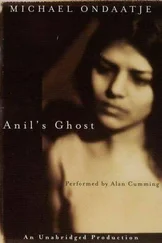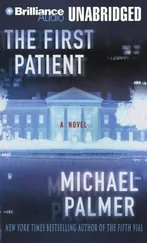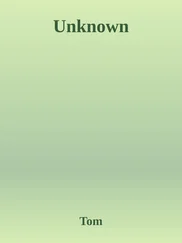Michael Ondaatje - The English Patient
Здесь есть возможность читать онлайн «Michael Ondaatje - The English Patient» весь текст электронной книги совершенно бесплатно (целиком полную версию без сокращений). В некоторых случаях можно слушать аудио, скачать через торрент в формате fb2 и присутствует краткое содержание. Жанр: Старинная литература, на русском языке. Описание произведения, (предисловие) а так же отзывы посетителей доступны на портале библиотеки ЛибКат.
- Название:The English Patient
- Автор:
- Жанр:
- Год:неизвестен
- ISBN:нет данных
- Рейтинг книги:4 / 5. Голосов: 1
-
Избранное:Добавить в избранное
- Отзывы:
-
Ваша оценка:
- 80
- 1
- 2
- 3
- 4
- 5
The English Patient: краткое содержание, описание и аннотация
Предлагаем к чтению аннотацию, описание, краткое содержание или предисловие (зависит от того, что написал сам автор книги «The English Patient»). Если вы не нашли необходимую информацию о книге — напишите в комментариях, мы постараемся отыскать её.
The English Patient — читать онлайн бесплатно полную книгу (весь текст) целиком
Ниже представлен текст книги, разбитый по страницам. Система сохранения места последней прочитанной страницы, позволяет с удобством читать онлайн бесплатно книгу «The English Patient», без необходимости каждый раз заново искать на чём Вы остановились. Поставьте закладку, и сможете в любой момент перейти на страницу, на которой закончили чтение.
Интервал:
Закладка:
And all the names of the tribes, the nomads of faith who walked in the monotone of the desert and saw brightness and faith and colour. The way a stone or found metal box or bone can become loved and turn eternal in a prayer. Such glory of this country she enters now and becomes part of. We die containing a richness of lovers and tribes, tastes we have swallowed, bodies we have plunged into and swum up as if rivers of wisdom, characters we have climbed into as if trees, fears we have hidden in as if caves. I wish for all this to be marked on my body when I am dead. I believe in such cartography—to be marked by nature, not just to label ourselves on a map like the names of rich men and women on buildings. We are communal histories, communal books. We are not owned or monogamous in our taste or experience. All I desired was to walk upon such an earth that had no maps.
I carried Katharine Clifton into the desert, where there is the communal book of moonlight. We were among the rumour of wells. In the palace of winds.
Almásy’s face fell to the left, staring at nothing—Caravaggio’s knees perhaps.
“Do you want some morphine now?”
“No.”
“Can I get you something?”
“Nothing.”
X
August
CARAVAGGIO CAME DOWN the stairs through darkness and into the kitchen. Some celery on the table, some turnips whose roots were still muddy. The only light came from a fire Hana had recently started. She had her back to him and had not heard his steps into the room. His days at the villa had loosened his body and freed his tenseness, so he seemed bigger, more sprawled out in his gestures. Only his silence of movement remained. Otherwise there was an easy inefficiency to him now, a sleepiness to his gestures.
He dragged out the chair so she would turn, realize he was in the room.
“Hello, David.”
He raised his arm. He felt that he had been in deserts for too long.
“How is he?”
“Asleep. Talked himself out.”
“Is he what you thought he was?”
“He’s fine. We can let him be.”
“I thought so. Kip and I are both sure he is English. Kip thinks the best people are eccentrics, he worked with one.”
“I think Kip is the eccentric myself. Where is he, anyway?”
“He’s plotting something on the terrace, doesn’t want me out there. Something for my birthday.” Hana stood up from her crouch at the grate, wiping her hand on the opposite forearm.
“For your birthday I’m going to tell you a small story,” he said.
She looked at him.
“Not about Patrick, okay?”
“A little about Patrick, mostly about you.”
“I still can’t listen to those stories, David.”
“Fathers die. You keep on loving them in any way you can. You can’t hide him away in your heart.”
“Talk to me when the morphia wears off.”
She came up to him and put her arms around him, reached up and kissed his cheek. His embrace tightened around her, his stubble like sand against her skin. She loved that about him now; in the past he had always been meticulous. The parting in his hair like Yonge Street at midnight, Patrick had said. Caravaggio had in the past moved like a god in her presence. Now, with his face and his trunk filled out and this greyness in him, he was a friendlier human.
Tonight dinner was being prepared by the sapper. Caravaggio was not looking forward to it. One meal in three was a loss as far as he was concerned. Kip found vegetables and presented them barely cooked, just briefly boiled into a soup. It was to be another purist meal, not what Caravaggio wished for after a day such as this when he had been listening to the man upstairs. He opened the cupboard beneath the sink. There, wrapped in damp cloth, was some dried meat, which Caravaggio cut and put into his pocket.
“I can get you off the morphine, you know. I’m a good nurse.”
“You’re surrounded by madmen.…”
“Yes, I think we are all mad.”
When Kip called them, they walked out of the kitchen and onto the terrace, whose border, with its low stone balustrade, was ringed with light.
It looked to Caravaggio like a string of small electric candles found in dusty churches, and he thought the sapper had gone too far in removing them from a chapel, even for Hana’s birthday. Hana walked slowly forward with her hands over her face. There was no wind. Her legs and thighs moved through the skirt of her frock as if it were thin water. Her tennis shoes silent on the stone.
“I kept finding dead shells wherever I was digging,” the sapper said.
They still didn’t understand. Caravaggio bent over the flutter of lights. They were snail shells filled with oil. He looked along the row of them; there must have been about forty.
“Forty-five,” Kip said, “the years so far of this century. Where I come from, we celebrate the age as well as ourselves.”
Hana moved alongside them, her hands in her pockets now, the way Kip loved to see her walk. So relaxed, as if she had put her arms away for the night, now in simple armless movement.
Caravaggio was diverted by the startling presence of three bottles of red wine on the table. He walked over and read the labels and shook his head, amazed. He knew the sapper wouldn’t drink any of it. All three had already been opened. Kip must have picked his way through some etiquette book in the library. Then he saw the corn and the meat and the potatoes. Hana slid her arm into Kip’s and came with him to the table.
They ate and drank, the unexpected thickness of the wine like meat on their tongues. They were soon turning silly in their toasts to the sapper—“the great forager”—and to the English patient. They toasted each other, Kip joining in with his beaker of water. This was when he began to talk about himself. Caravaggio pressing him on, not always listening, sometimes standing up and walking around the table, pacing and pacing with pleasure at all this. He wanted these two married, longed to force them verbally towards it, but they seemed to have their own strange rules about their relationship. What was he doing in this role. He sat down again. Now and then he noticed the death of a light. The snail shells held only so much oil. Kip would rise and refill them with pink paraffin.
“We must keep them lit till midnight.”
They talked then about the war, so far away. “When the war with Japan is over, everyone will finally go home,” Kip said. “And where will you go?” Caravaggio asked. The sapper rolled his head, half nodding, half shaking it, his mouth smiling. So Caravaggio began to talk, mostly to Kip.
The dog cautiously approached the table and laid its head on Caravaggio’s lap. The sapper asked for other stories about Toronto as if it were a place of peculiar wonders. Snow that drowned the city, iced up the harbour, ferryboats in the summer where people listened to concerts. But what he was really interested in were the clues to Hana’s nature, though she was evasive, veering Caravaggio away from stories that involved some moment of her life. She wanted Kip to know her only in the present, a person perhaps more flawed or more compassionate or harder or more obsessed than the girl or young woman she had been then. In her life there was her mother Alice her father Patrick her stepmother Clara and Caravaggio. She had already admitted these names to Kip as if they were her credentials, her dowry. They were faultless and needed no discussion. She used them like authorities in a book she could refer to on the right way to boil an egg, or the correct way to slip garlic into a lamb. They were not to be questioned.
And now—because he was quite drunk—Caravaggio told the story of Hana’s singing the “Marseillaise,” which he had told her before. “Yes, I have heard the song,” said Kip, and he attempted a version of it. “No, you have to sing it out “ said Hana, “you have to sing it standing up!”
Читать дальшеИнтервал:
Закладка:
Похожие книги на «The English Patient»
Представляем Вашему вниманию похожие книги на «The English Patient» списком для выбора. Мы отобрали схожую по названию и смыслу литературу в надежде предоставить читателям больше вариантов отыскать новые, интересные, ещё непрочитанные произведения.
Обсуждение, отзывы о книге «The English Patient» и просто собственные мнения читателей. Оставьте ваши комментарии, напишите, что Вы думаете о произведении, его смысле или главных героях. Укажите что конкретно понравилось, а что нет, и почему Вы так считаете.












